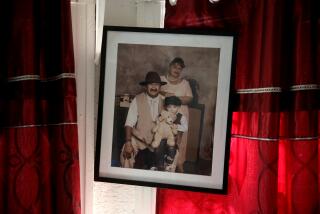Dr. Milton Roemer; Expert on Public Health Taught at UCLA
- Share via
If a hospital bed is put in place, a patient will soon occupy it.
That observation, known as Roemer’s Law, can be expressed in the health care industry as: Supply creates demand.
The finding by Dr. Milton I. Roemer, a UCLA public health professor and researcher for 38 years, spawned landmark legislation requiring hospitals to prove a need before they could expand facilities and buy equipment.
Roemer, also a longtime champion of universal health insurance and an internationally known expert on public health who worked in 71 countries and published 32 books and 430 articles, died Jan. 3.
The 84-year-old doctor died of heart failure in Los Angeles, said his daughter, Beth Roemer Lewis, of Berkeley.
“Dr. Roemer was a world-renowned scholar in many areas of public health, including international health, primary care, rural health and health care organization,” said Ron Andersen, the chairman of the UCLA School of Public Health’s department of health services. “He and his wife, Prof. Ruth Roemer, have been bastions in the UCLA School of Public Health, advocates and committed teachers of our students and gracious hosts, not only to the UCLA community, but literally to the entire world of public health.”
Milton Roemer’s most singular book was the two-volume “National Health Systems of the World,” a monumental comparative analysis of international health care delivery.
A pioneer in universal health insurance and a veteran supporter of health maintenance organizations, Roemer headed North America’s first social insurance program for hospital care in 1953--in Canada’s Saskatchewan province.
“I was able to study the condition of life of 1 million people in 300 localities in Canada and relate that to the use of hospitals,” he told The Times in 1986, describing how he devised Roemer’s Law. “If you have more beds, they’ll use more beds where they have extensive insurance. This gave rise to the first hospital planning laws.”
After coming to California and UCLA in 1962, Roemer made numerous trips to Sacramento to help draft and advocate various state-backed health insurance plans covering the entire population.
Among them was the 1987 California Health Insurance Program, which he and UCLA colleague E. Richard Brown wrote. The proposal would have worked with existing private health plans, Medicare and Medi-Cal, but required all Californians to enroll in some plan and mandated employers to pay half the premiums.
A New Jersey native, Roemer earned a master’s in sociology from Cornell University in 1939, his M.D. from New York University a year later and a public health degree from the University of Michigan in 1943.
“My father was a clinical doctor,” he said in 1986. “But I wasn’t even sure I wanted to go to college. I was so conscious of the Depression and life at that time. In the middle of medical training, I spent summers getting my master’s in sociology. I knew then I was going into public health.”
Roemer first worked as a medical officer for the New Jersey State Department of Health, supervising 92 venereal disease clinics, and during World War II supervising rural New Jersey health care for the U.S. Public Health Service. He co-wrote a 1948 book, “Rural Health and Medical Care,” the first systemic analysis of rural health care needs and services in the United States.
In 1951, Roemer took on his first international assignment as chief of the social and occupational health section of the newly formed World Health Organization, based in Geneva, Switzerland. The position proved short-lived when the U.S. government, embroiled in McCarthyism, withdrew approval of his appointment in 1953.
So he took the position in Canada, and then taught at Yale and Cornell before moving to UCLA in 1962. In addition to his 38 years of teaching and research in Westwood, he served as dean for eight years.
Roemer and his wife established the Milton and Ruth Roemer Prize for Creative Local Public Health Work, granted annually by the American Public Health Assn.
That group gave Roemer its International Award in 1977 for promoting and protecting public health; its most prestigious prize, the Sedgwick Memorial Medal for distinguished service in public health in 1983, and three years ago the lifetime achievement award of its International Section.
He is survived by his wife of 61 years; a son, John E. Roemer of New York City; his daughter; and six grandchildren.
A memorial service will be planned at UCLA in a few months. The family has asked that any memorial donations be made to the American Public Health Assn. in Washington, D.C., the Department of Health Services at the UCLA School of Public Health, or to Physicians for Social Responsibility.





